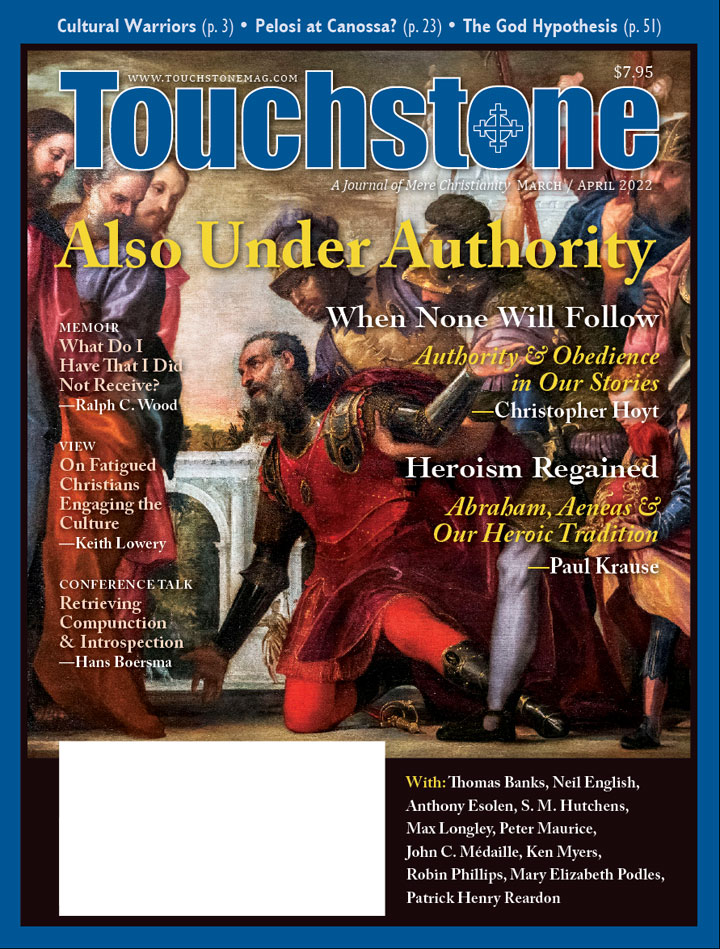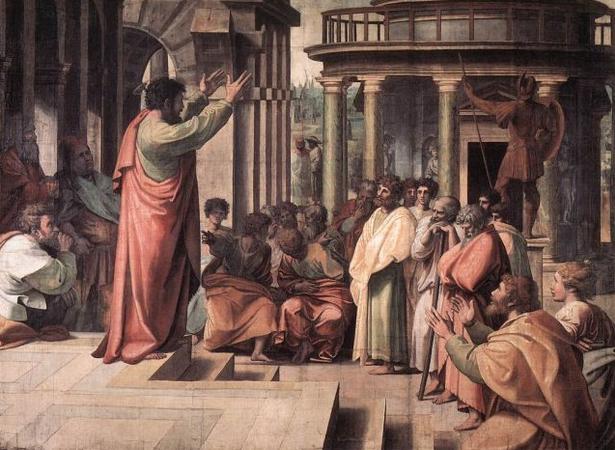Remembering Alice von Hildebrand
Rest in Peace, my friend Alice von Hildebrand, 1923–2022.
I first met Lily at the rectory of Saint John the Evangelist, in Stamford, Connecticut. I had been invited by our mutual friend Father Paul Check to give a talk to some 150 parishioners on Shakespeare, so I spoke about purity, in The Tempest. But before the talk, he and I had dinner with a few other priests and with his friend and a frequent guest, Alice von Hildebrand. When she first arrived, I went up to her and said, "Professor, I am honored to meet you." She shook my hand and said, "And who are you?" We hit it off immediately, and tremendously. All through supper we talked about literature—not philosophy. It seems that her beloved husband Dietrich von Hildebrand was a lover of Cervantes, and that he would read Don Quixote once every year. So they were in Mexico once, early in their marriage, and he asked her to read Don Quixote to him.
"But I can't really read Spanish," she said.
"That's all right," said he. "I know what it means already anyway."
It's quite appropriate that they were enthralled by Cervantes, the brave soldier who lost an eye at the Battle of Lepanto, and who was so daring and noble he won the affection of his Moorish captors when he was a prisoner of war. For Dietrich von Hildebrand inveighed against the stupidity of racialism, anti-Judaism, and Nazism as early as 1921—you read that correctly. For much of the 1930s, official cutting-edge liberal eugenicist America was playing footsie with Hitler, but Hildebrand saw into him and through him all the way back in 1921, and was a vocal and relentless foe, much to the cost of his career and his worldly prospects. After the putsch in Austria and the assassination of the much-maligned and still-slandered Dollfuss, Dietrich von Hildebrand and his wife—Lily married him much later, when he was a widower—escaped from Austria on the last train out, with Swiss passports. He was tops on Hitler's list of men to be obliterated.
Lily was utterly devoted to her husband's intellectual work, which is immense, and most of it is still not available in English. And she was a powerful thinker in her own right—a formidable woman. I remember, for example, how before a large audience of students at Providence College, Lily called out the materialist Ernst Bloch as the stupidest philosopher who ever lived, citing his saying that the brain excretes thoughts as the liver excretes bile. She had no patience for David Hume either, or for anyone who dared to reduce the wonder of this strange and beautiful world that God has made.
We met quite a few times after that meeting, and we corresponded, too. Over her last ten years, she was in a good deal of physical discomfort and pain. She told me that she put stoups of holy water here and there through her house, to help her practice what she called "holy pestering," that is, petitions to God to alleviate her suffering by taking her away, yet not her will but his was to be done.
It is strange to consider that everyone who knew Lily was only three degrees of separation from Edmund Husserl, who was Dietrich's teacher and mentor; Edith Stein and others in that intellectual crowd; Max Scheler; the conductor Wilhelm Furtwängler; Dietrich's father, the monumental sculptor August von Hildebrand—and Hitler. Yet Dietrich's native language was not German, but Italian; he spent his boyhood in Tuscany. When he lay dying, he could no longer speak German—or English or French or Spanish—but only Italian.
Lily von Hildebrand was a good and brave and gracious woman, whose breadth and depth of reading would make most professors in our time look like rather clever but ill-bred and ill-read high-schoolers.
Requiem aeternam dona ei, Domine, et lux perpetua luceat super eam.
Anthony Esolen is Distinguished Professor of Humanities at Thales College and the author of over 30 books, including Real Music: A Guide to the Timeless Hymns of the Church (Tan, with a CD), Out of the Ashes: Rebuilding American Culture (Regnery), and The Hundredfold: Songs for the Lord (Ignatius). He has also translated Dante’s Divine Comedy (Random House) and, with his wife Debra, publishes the web magazine Word and Song (anthonyesolen.substack.com). He is a senior editor of Touchstone.
subscription options
Order
Print/Online Subscription

Get six issues (one year) of Touchstone PLUS full online access including pdf downloads for only $39.95. That's only $3.34 per month!
Order
Online Only
Subscription

Get a one-year full-access subscription to the Touchstone online archives for only $19.95. That's only $1.66 per month!
bulk subscriptions
Order Touchstone subscriptions in bulk and save $10 per sub! Each subscription includes 6 issues of Touchstone plus full online access to touchstonemag.com—including archives, videos, and pdf downloads of recent issues for only $29.95 each! Great for churches or study groups.
Transactions will be processed on a secure server.
more from the online archives
calling all readers
Please Donate
"There are magazines worth reading but few worth saving . . . Touchstone is just such a magazine."
—Alice von Hildebrand
"Here we do not concede one square millimeter of territory to falsehood, folly, contemporary sentimentality, or fashion. We speak the truth, and let God be our judge. . . . Touchstone is the one committedly Christian conservative journal."
—Anthony Esolen, Touchstone senior editor









